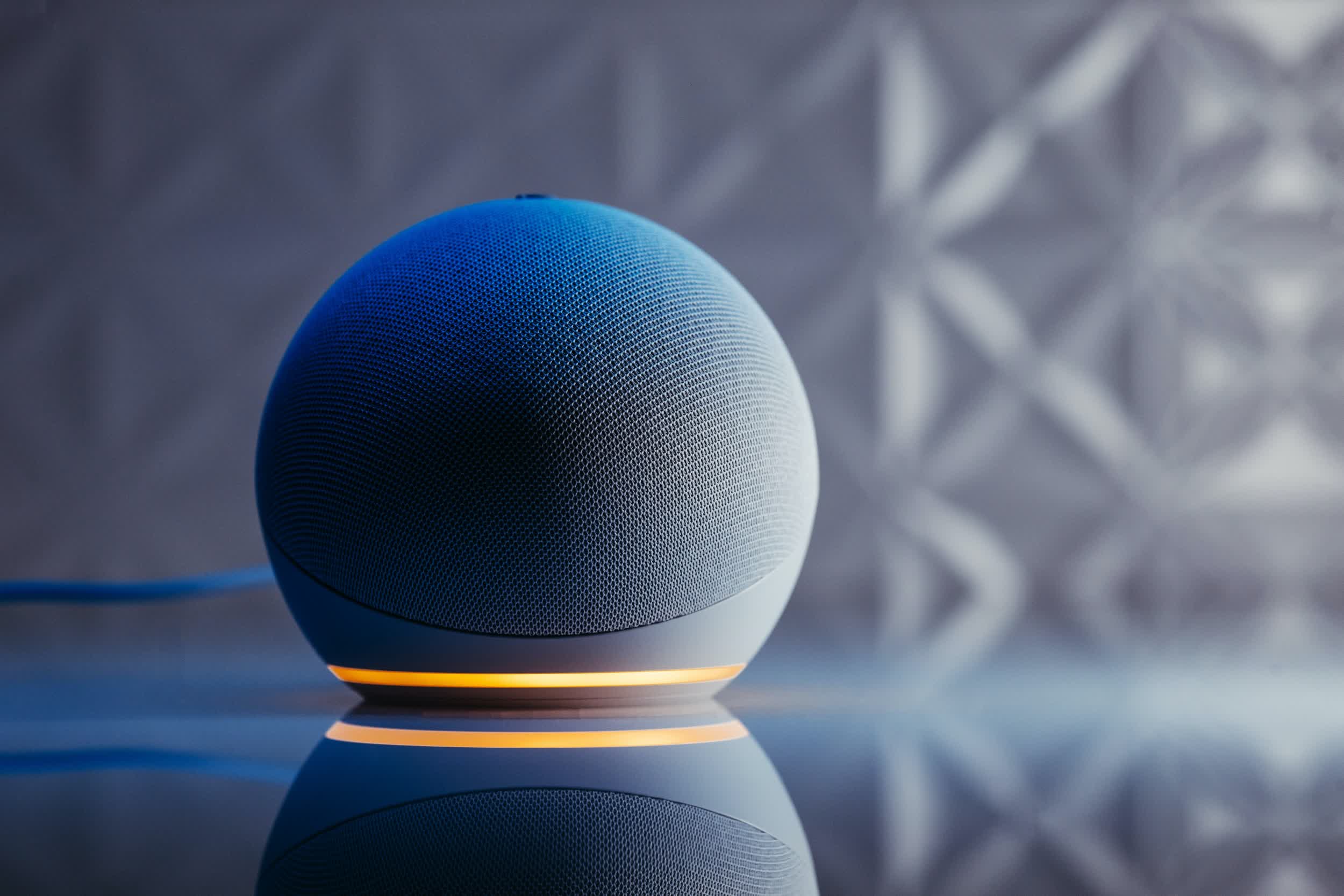Recap: Amazon found itself between a rock and a hard place in 2014. The Fire Phone was already going down in flames when Amazon introduced its Echo speaker near the end of the year. The unassuming connected speaker had obvious potential as a shopping companion but few realized just how much of an impact Alexa would have on the company's product portfolio and strategy in the years to come.

Few things persist for very long in the rapidly evolving world of technology and nearly a decade in, Alexa is struggling.
Around this time last year, Bloomberg reported that Amazon was experiencing serious Alexa user retention issues. Holiday sales data at the time indicated that as many as 25 percent of new Alexa device owners were no longer actively using the virtual assistant into their second week of ownership.
The tune doesn't appear to have changed much over the past year. According to a new report from Business Insider, Amazon's worldwide digital unit (which includes Alexa and Echo devices) had an operating loss of more than $3 billion in Q1. According to one source, most of the losses were tied to Alexa and related devices. What's more, it's over double the losses of Amazon's grocery business.
Last week, Amazon started laying off team members from its devices and services organization. A day later, CEO Andy Jassy said additional role reductions would continue into early 2023.

Alexa was reportedly the brain child of Amazon founder Jeff Bezos, who was heavily engaged with the development team during its early days. Over the years, however, online privacy became a major talking point among consumers and Amazon wasn't immune. Reports of Amazon employees listening to Alexa conversations made headlines and police in Arkansas even wanted to use data captured by an Echo speaker in a murder case. Needless to say, it's the sort of behavior that spooked consumers.
What's more, Alexa wasn't generating revenue like the company initially envisioned. Early on, many saw Alexa as a way to help Amazon sell more products (hands-free ordering, for example). This was supported by an aggressive sales model in which Amazon would sell hardware at cost and make revenue down the road on the software (Alexa) side. Instead, Alexa evolved into being a personal assistant tasked with carrying out trivial, non-monetizable actions like playing music or reciting a weather forecast.
Amazon froze hiring for the Alexa team in 2019 and shortly after, Bezos reportedly lost interest in the division. Additional efforts to monetize the platform also fell short.
Related reading: This is what comes next for Amazon's Alexa
Amazon has struggled with other hardware bets as well. Its Astro home robot was described by one developer as a privacy nightmare and a disaster that was not fit for release. Just last month, Amazon announced it was halting field testing of its Scout delivery robot and would be reassigning employees to other projects. Prime Air, a moonshot first teased way back in 2013, still hasn't fully materialized.
One source familiar with Alexa told Business Insider that Amazon is on pace to lose around $10 billion on Alexa and related devices this year. A former employee said Alexa was a colossal failure of imagination. "It was a wasted opportunity," the person added.

Amazon seemingly dismissed the notion that Alexa and Echo was in trouble. Amazon's senior vice president for devices and services, David Limp, told the publication that they are as committed as ever to Alexa and Echo, and will continue to invest heavily in them.
As it stands today, Alexa is the third most popular voice assistant in the US behind the Google Assistant and Apple's Siri with 75.6 million users. According to Insider Intelligence, Google's offering leads the way with 81.5 million users followed by Siri with 77.6 million users.
Image credit: Jonathan Borba, GeekWire, Andres Urena
https://www.techspot.com/news/96736-amazon-hardware-group-faces-steep-losses-alexa-monetization.html